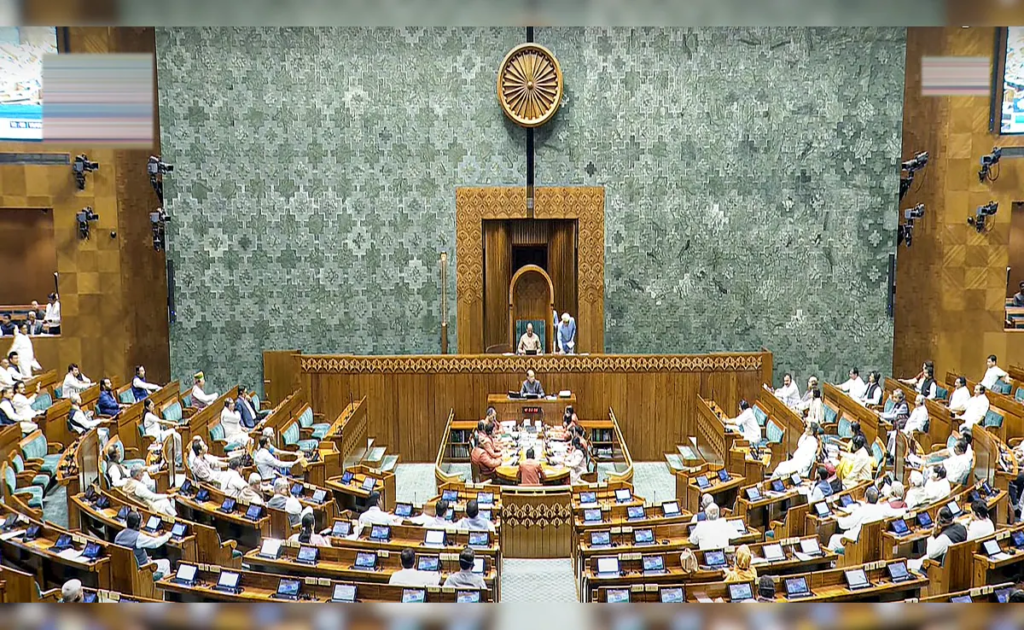On Wednesday, April 2, 2025, the Waqf (Amendment) Bill took center stage in the Lok Sabha, India’s lower house of Parliament. After a heated 12-hour debate that stretched into early Thursday morning, the Bill passed with 288 votes in favor and 232 against, showing how divided opinions are on this topic.
Amit Shah Slams Old Waqf Rules
Home Minister Amit Shah spoke up during the debate, aiming for changes to Waqf laws in 2013 by the UPA government. He called them a last-minute move before the 2014 elections, saying they handed over 123 valuable properties in Delhi’s fancy Lutyens area to Waqf control. Shah argued that those rushed changes caused problems, and if they hadn’t happened, this new Bill wouldn’t be needed. He also pushed for better oversight of Waqf Boards to stop money mishandling and keep things fair.
Kiren Rijiju Stands Up for the Bill
Parliamentary Affairs Minister Kiren Rijiju jumped in to defend the government, rejecting claims that the Bill targets Muslims. He said past governments split the community by making separate Sunni and Shia boards, while this Bill creates one unified board to bring people together. Rijiju explained that Waqf properties and their boards aren’t the same thing, and non-Muslims won’t meddle in religious matters—district collectors will just handle the paperwork side. He also hit back at AIMIM MP Asaduddin Owaisi, pointing out that Hindus already have similar rules, and this Bill is about fairness for everyone.
MUST READ: Waqf Panel Approves 14 NDA Amendments, Rejects 44 Opposition Proposals

Opposition Fights Back
The opposition wasn’t having it—they called the Bill anti-Muslim and against the Constitution. Congress MP Gaurav Gogoi said it’s a direct attack on Muslims and breaks the rules of Parliament and the Constitution. Samajwadi Party’s Akhilesh Yadav didn’t like the term “Unified Waqf Management,” saying it’s confusing and doesn’t explain much. Congress leader Rashid Alvi promised that if his party wins in 2029, they’ll rewrite the Waqf law. Meanwhile, Congress spokesperson Pawan Khera said the Bill trashes B.R. Ambedkar’s ideas of equality and minority rights, accusing it of dividing people by religion. Another Congress MP, K.C. Venugopal, agreed, saying it’s all about stirring up trouble between communities.
Some Back the Bill
Not everyone’s against it, though. Iqbal Singh Lalpura, head of the National Commission for Minorities, said the Bill is good for Muslims and won’t hurt them. Syed Naseruddin Chishty from the All India Sufi Sajjadanashin Council also supported it, saying it won’t take away religious properties—it’s just adding rules to stop misuse of Waqf land.
Regional Pushback
In Jammu and Kashmir, most political parties—except the BJP—said no to the Bill. Former Chief Minister Omar Abdullah made it clear his party wants nothing to do with it, arguing it unfairly singles out Muslims.
What’s the Big Deal?
The Waqf (Amendment) Bill 2025 has everyone talking. Supporters say it’s about making Waqf property management clearer and more honest, stopping scams and waste. Critics, though, see it as a move to weaken Muslim rights and spark religious tension. With its passage in the Lok Sabha, this Bill has stirred up a major political storm—and it’s not over yet as it heads to the Rajya Sabha next!










